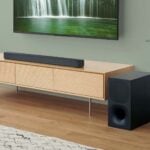Matt_Smi
Second Unit
- Joined
- Apr 11, 2004
- Messages
- 327
- Real Name
- blank
I was not sure where to post this but if there is a more appropriate place feel free to move it. Ok I need a definitive answer here, my room currently has no three prong grounded outlets in it, I plan to have them installed (hopefully I can without rewiring the whole floor). But for the time being can a surge protector still do its job properly and protect my equipment from a surge if it’s plugged into a two prong outlet with an adaptor or “cheater plug”? I have heard different things on this and I need a straight answer. I recently read this from the crutchfield site
“Q: I only have a 2-prong outlet — can I use a power protection model with a 3-prong plug?
A: A power protection unit can be used with a 2-prong adapter to prevent surge and spike damage. However, doing so will invalidate the power protection unit's connected equipment insurance policy. A 3-prong outlet should be used whenever possible."
But I have also heard before that a surge protector needs to be grounded to work and if it’s not than it’s useless. The main reason I ask is because right now I am using cheap $10 surge protectors for my A/V setup and my computer, I want to buy some decent ones, but I don’t know if I should even bother getting them now, or if should wait until I hopefully get my outlets grounded, if they don’t work on an un-grounded outlet than there is no sense in buying new ones yet. Also should I bother paying extra for a surge protector like the Monster one in the link below, or should I save my money and just buy a “no name” one like the cyber power in the other link below. Thanks to anyone who can clear this up for me, because I have been wondering about it for some time now.
Monster Surge Protector
http://www.monstercable.com/power/pr...er.asp?pin=592
Cyber Power Surge Protector
http://www.circuitcity.com/detail.js...&oid=70965&m=0
“Q: I only have a 2-prong outlet — can I use a power protection model with a 3-prong plug?
A: A power protection unit can be used with a 2-prong adapter to prevent surge and spike damage. However, doing so will invalidate the power protection unit's connected equipment insurance policy. A 3-prong outlet should be used whenever possible."
But I have also heard before that a surge protector needs to be grounded to work and if it’s not than it’s useless. The main reason I ask is because right now I am using cheap $10 surge protectors for my A/V setup and my computer, I want to buy some decent ones, but I don’t know if I should even bother getting them now, or if should wait until I hopefully get my outlets grounded, if they don’t work on an un-grounded outlet than there is no sense in buying new ones yet. Also should I bother paying extra for a surge protector like the Monster one in the link below, or should I save my money and just buy a “no name” one like the cyber power in the other link below. Thanks to anyone who can clear this up for me, because I have been wondering about it for some time now.
Monster Surge Protector
http://www.monstercable.com/power/pr...er.asp?pin=592
Cyber Power Surge Protector
http://www.circuitcity.com/detail.js...&oid=70965&m=0






